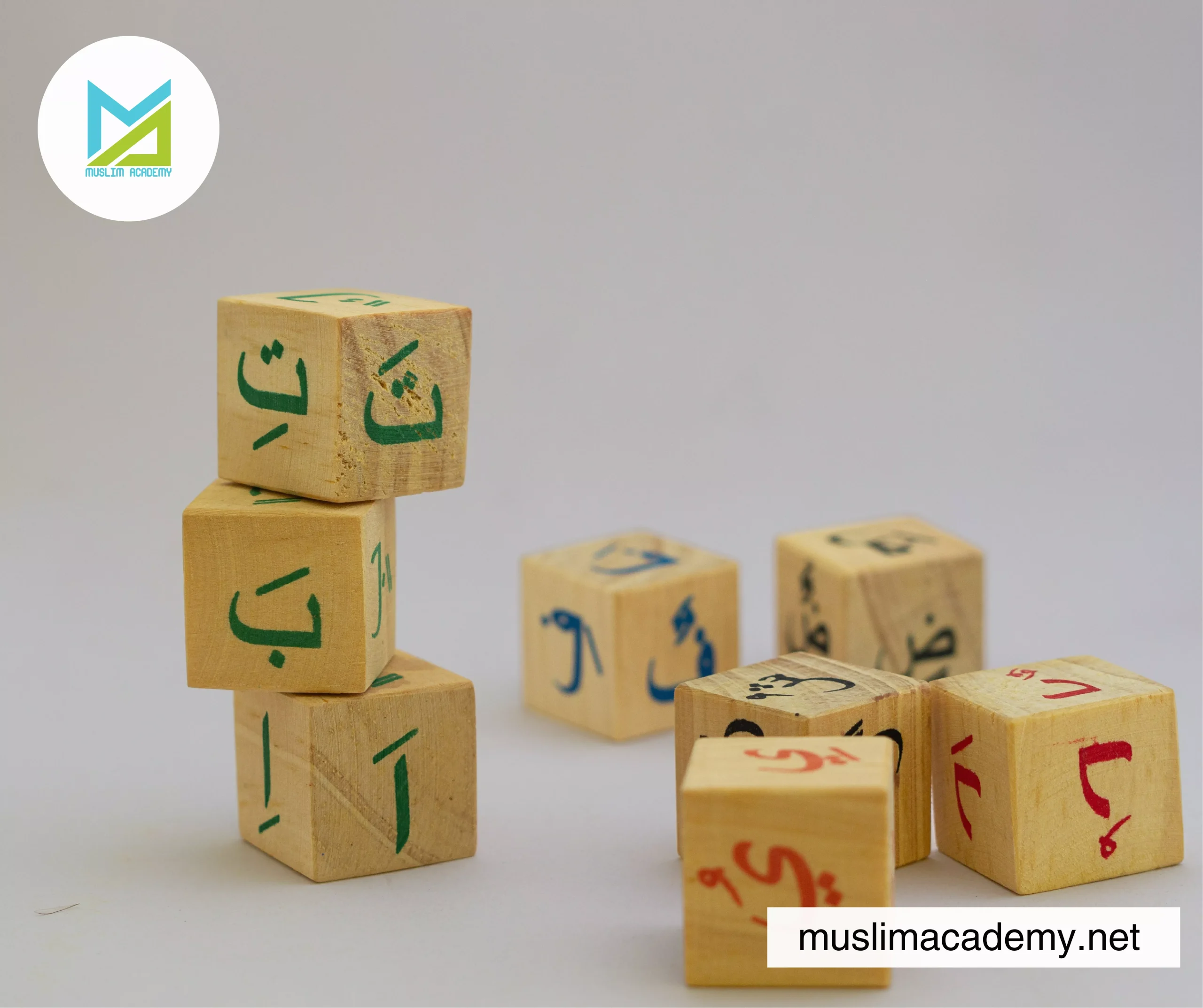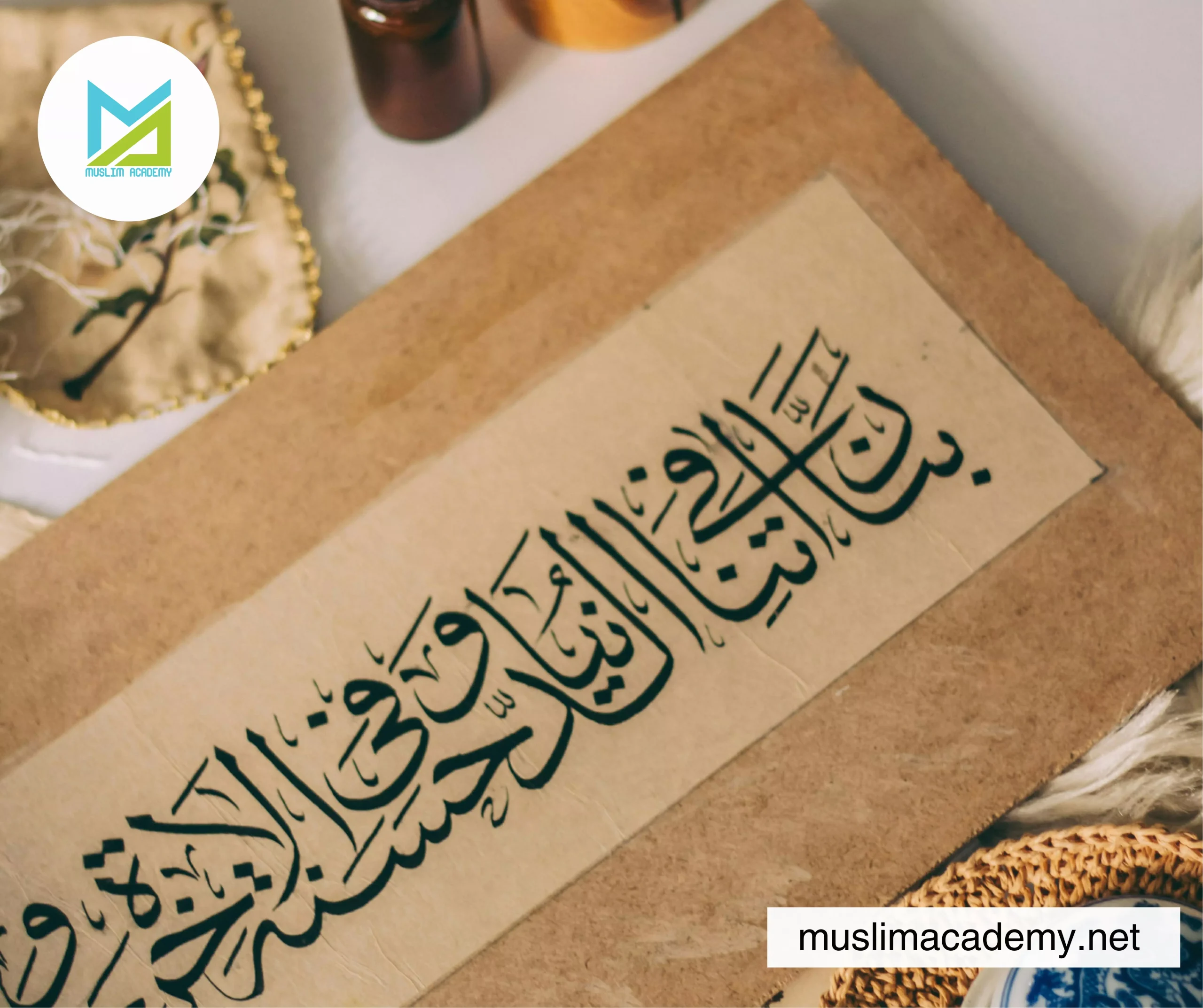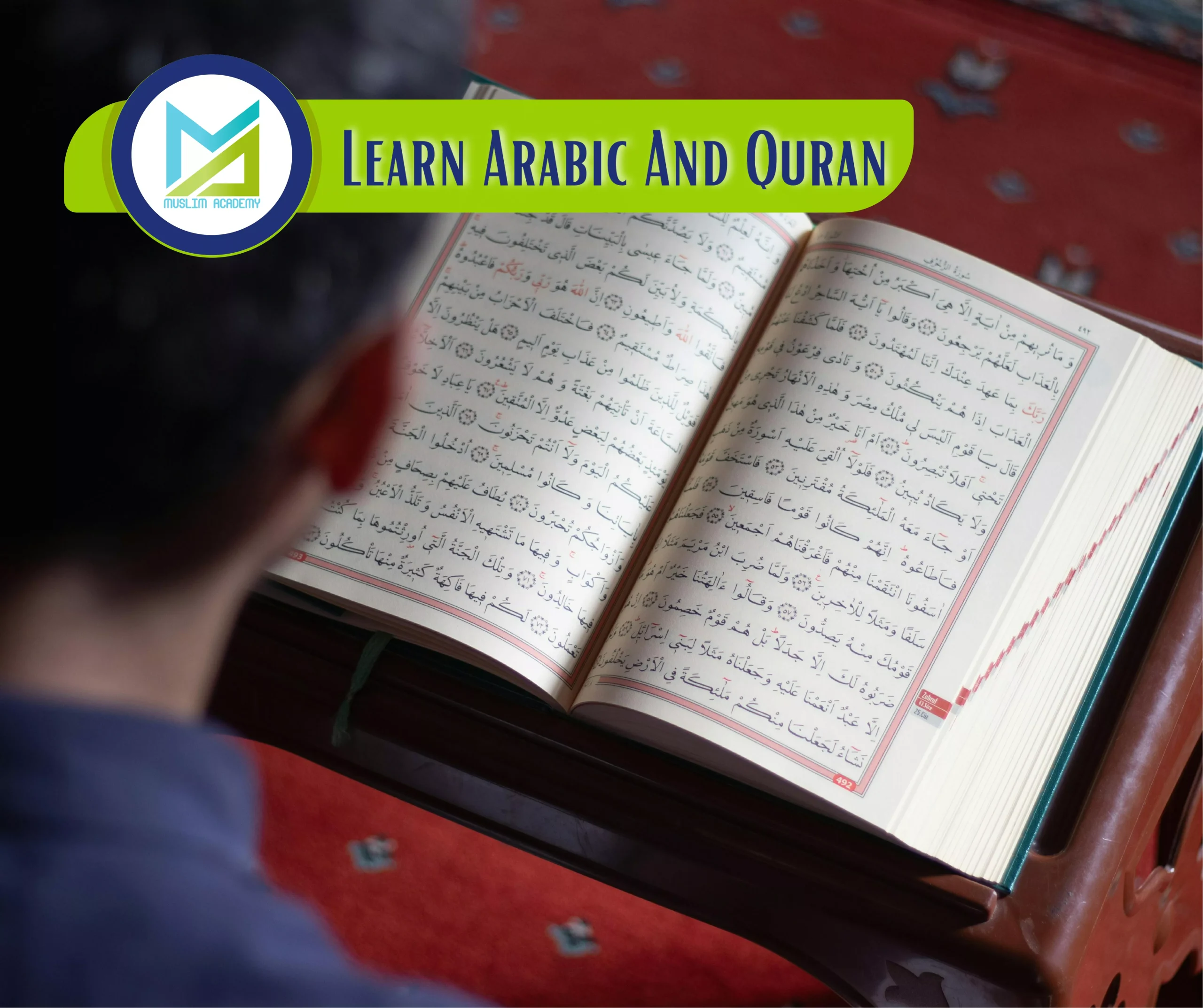Start Online Quran Classes with Muslim Academy
https://muslimacademy.net/index.php/free-trial/
The journey to Learn Arabic and the Quran with Muslim Academy represents one of the most profound and rewarding educational endeavors in Islamic tradition. This dual pursuit combines linguistic mastery with spiritual enlightenment, creating a transformative learning experience that enriches both intellectual understanding and personal faith. For Muslims worldwide, the decision to Learn Arabic and the Quran with Muslim Academy opens doors to a deeper comprehension of their religion, enhanced prayer experiences, and direct engagement with the divine text in its original, unaltered form.
The Interconnected Nature of Arabic and Quranic Studies
Understanding why it’s essential to Learn Arabic and the Quran with Muslim Academy together requires recognizing the intimate relationship between language and meaning in Islamic scripture. The Quran was revealed in classical Arabic, a language renowned for its precision, eloquence, and depth of expression. Each Arabic word in the Quran carries layers of meaning, historical context, and spiritual significance that translations, however skilled, cannot fully convey.
When students Learn Arabic and the Quran with Muslim Academy simultaneously, they develop the ability to appreciate the text’s linguistic beauty, understand subtle grammatical nuances, and grasp meanings that might be lost in translation. This comprehensive approach enables learners to engage with the Quran as it was originally revealed, experiencing the same linguistic richness that captivated the earliest Muslim communities.
The Arabic language serves as more than just a communication tool in the Islamic context; it represents the medium through which Allah chose to convey His final revelation. This sacred connection between language and divine message decides to Learn Arabic and the Quran with Muslim Academy, a spiritual journey as much as an academic pursuit.
Building Strong Foundations in the Arabic Language
Mastering the Arabic Alphabet and Phonetics
The first step for those who wish to Learn Arabic and the Quran with Muslim Academy involves mastering the Arabic writing system and its unique phonetic characteristics. Arabic script flows from right to left and features letters that change form depending on their position within words. This initial learning phase requires patience and consistent practice, but it provides the essential foundation for all subsequent Quranic study.
Understanding Arabic phonetics becomes particularly important when learning Quranic recitation. Each Arabic letter has specific articulation points and characteristics that affect pronunciation and meaning. Students who Learn Arabic and the Quran with Muslim Academy together develop sensitivity to these subtle differences, enabling them to recite the Quran with proper pronunciation and appreciate the rhythmic beauty that makes Arabic poetry and scripture so compelling.
Grammar and Sentence Structure
Arabic grammar, known as Nahw, provides the structural framework necessary for understanding the Quranic text. When students Learn Arabic and Quran with Muslim Academy with attention to grammatical rules, they can parse complex sentences, understand verb conjugations, and recognize how word order affects meaning in Arabic text.
Classical Arabic grammar includes sophisticated systems for expressing tense, mood, and aspect that don’t exist in many modern languages. These grammatical subtleties often carry important theological and practical implications in Quranic verses. Students who Learn Arabic and the Quran with Muslim Academy with strong grammatical foundations can appreciate these nuances and understand how slight changes in word form can significantly alter meaning and interpretation.

Vocabulary Development and Root Systems
Arabic vocabulary follows systematic root patterns that make word recognition and meaning derivation more predictable once students understand the underlying system. Most Arabic words derive from three-letter roots that carry core meanings, with various patterns applied to create related words with specific grammatical functions and semantic relationships.
This root system becomes invaluable for students who Learn Arabic and Quran with Muslim Academy because it enables them to understand unfamiliar vocabulary by recognizing familiar root patterns. As students encounter new words in the Quranic text, they can often deduce meanings based on their knowledge of root systems and common word patterns, making independent study more feasible and rewarding.
Quranic Arabic: Unique Characteristics and Challenges
Classical Arabic Preservation
The Quran preserves classical Arabic in its purest form, maintaining linguistic structures and vocabulary that have remained unchanged for over fourteen centuries. Students who Learn Arabic and the Quran with Muslim Academy engage with this preserved classical form, which differs in some aspects from modern spoken Arabic dialects but provides unparalleled access to Islamic literary heritage.
This preservation means that students can read and understand classical Islamic texts, legal documents, and scholarly commentaries written throughout Islamic history. The decision to Learn Arabic and the Quran with Muslim Academy thus opens doors not only to scripture but to the entire corpus of Islamic intellectual tradition.
Rhetorical Devices and Literary Excellence
Quranic Arabic employs sophisticated rhetorical devices, metaphors, and literary techniques that contribute to its recognition as the pinnacle of Arabic literature. Students who Learn Arabic and Quran with Muslim Academy with attention to these literary elements develop an appreciation for the text’s artistic beauty alongside its spiritual significance.
Understanding Quranic rhetoric requires familiarity with Arabic poetry traditions, metaphorical language, and cultural contexts that inform the text’s imagery and analogies. This literary dimension adds richness to the learning experience and helps students understand why the Quran’s linguistic excellence was recognized even by non-Muslim Arabic speakers during the revelation period.
Integrated Learning Methodologies
Simultaneous Language and Scripture Study
Effective programs that help students Learn Arabic and the Quran with Muslim Academy employ integrated methodologies that reinforce language learning through scriptural engagement. Rather than treating Arabic and Quranic studies as separate subjects, these approaches use the Quranic text as the primary vehicle for language instruction, creating meaningful contexts for grammar rules, vocabulary acquisition, and pronunciation practice.
This integrated approach ensures that language learning remains purposeful and spiritually motivated. Students see immediate applications for their Arabic studies in their Quranic recitation and understanding, maintaining motivation through visible progress in both linguistic competency and spiritual connection with the text.
Progressive Skill Building
Students who Learn Arabic and the Quran with Muslim Academy benefit from carefully structured curricula that build skills progressively from basic letter recognition to complex textual analysis. Early stages focus on reading fluency and basic vocabulary, while advanced levels incorporate grammatical analysis, comparative interpretation, and independent study skills.
This progressive approach ensures that students develop solid foundations before advancing to more challenging material. Each skill level builds upon previous knowledge, creating cumulative learning that strengthens both Arabic proficiency and Quranic understanding over time.
Modern Technology and Traditional Methods
Digital Learning Tools and Applications
Contemporary students who wish to Learn Arabic and the Quran with Muslim Academy have access to sophisticated digital tools that enhance traditional learning methods. Interactive applications provide pronunciation feedback, grammar exercises, and vocabulary drills that supplement classroom instruction and enable flexible, self-paced study.
Online platforms often include audio recordings from master reciters, allowing students to hear proper pronunciation and melodic recitation styles. Digital dictionaries, root analyzers, and grammatical parsing tools provide instant assistance when students encounter challenging passages during independent study.
Maintaining Traditional Teaching Values
While embracing technological innovations, successful programs that help students Learn Arabic and Quran with Muslim Academy maintain respect for traditional Islamic educational values. This includes emphasis on teacher-student relationships, memorization as a learning tool, and the spiritual dimensions of sacred text study.
The most effective approaches combine digital convenience with traditional wisdom, using technology to enhance rather than replace time-tested educational methods that have successfully transmitted Islamic knowledge across generations.
Specialized Learning Tracks and Programs
Intensive Immersion Programs
For dedicated students seeking rapid progress, intensive programs enable learners to Learn Arabic and Quran with Muslim Academy through immersive experiences that combine classroom instruction with cultural immersion and constant language exposure. These programs often feature Arabic-only environments where students must use their developing language skills for daily communication alongside formal study.
Immersion approaches accelerate learning by forcing practical application of linguistic knowledge while maintaining focus on Quranic study objectives. Students develop conversational fluency alongside reading comprehension, creating more complete Arabic competency that serves both religious and practical purposes.

Part-Time and Flexible Learning Options
Recognizing that many students have work, family, and other commitments, flexible programs enable busy learners to Learn Arabic and Quran with Muslim Academy according to their available schedules. These options might include evening classes, weekend intensives, or online programs that accommodate diverse lifestyle needs.
Flexible learning requires strong self-discipline and motivation, but it makes Quranic education accessible to demographics that might otherwise be unable to pursue intensive study. Many successful students combine multiple learning modalities, using online resources for daily practice and attending periodic in-person sessions for direct instruction and community interaction.
Family-Centered Learning Approaches
Many families choose to Learn Arabic and the Quran with Muslim Academy together, creating household environments that support everyone’s Islamic education while accommodating different age groups and skill levels. Family programs often include age-appropriate materials for children alongside adult instruction, enabling parents and children to support each other’s learning journey.
These family-centered approaches strengthen Islamic practice within households while creating shared learning experiences that bond family members through common educational goals and spiritual pursuits.
Overcoming Common Challenges
Managing Linguistic Complexity
Arabic’s linguistic complexity can intimidate beginning students, particularly those whose native languages use different writing systems or grammatical structures. Successful students who Learn Arabic and Quran with Muslim Academy approach this challenge with patience, realistic expectations, and consistent daily practice that builds competency gradually over time.
Breaking complex goals into manageable daily objectives helps students maintain motivation while making steady progress. Celebrating small achievements and recognizing incremental improvements keeps students engaged during challenging learning phases.
Balancing Accuracy with Fluency
Students often struggle with balancing the desire for perfect accuracy with the need to develop reading fluency. While precision in pronunciation and understanding is important when studying sacred text, excessive perfectionism can hinder progress and discourage continued effort.
Effective programs that help students Learn Arabic and the Quran with Muslim Academy emphasize progressive improvement rather than immediate perfection. Students learn to accept their current skill level while working consistently toward higher standards, understanding that mastery develops through sustained effort over time.
Maintaining Long-Term Motivation
The journey to Learn Arabic and the Quran with Muslim Academy requires sustained effort over months or years, making motivation maintenance crucial for success. Students benefit from setting varied goals that provide regular achievement opportunities, connecting with learning communities that offer support and encouragement, and regularly reflecting on the spiritual benefits of their educational pursuit.
Connecting learning objectives to personal spiritual goals helps students maintain motivation during difficult periods. Understanding that language acquisition and Quranic knowledge serve broader purposes of spiritual development and religious practice provides meaning that sustains long-term commitment.
The Transformative Impact of Integrated Learning
Enhanced Prayer and Worship Experience
Students who successfully Learn Arabic and the Quran with Muslim Academy report dramatically improved prayer experiences as they begin understanding the meanings of verses they recite during daily worship. This comprehension transforms ritual recitation into meaningful communication with Allah, deepening spiritual connection and personal devotion.
Understanding Arabic prayers and Quranic passages enables more mindful worship, as students can focus on meanings rather than simply pronouncing unfamiliar sounds. This enhanced understanding often leads to increased consistency in prayer practice and greater spiritual satisfaction in religious observance.
Deeper Connection to Islamic Heritage
The ability to read classical Arabic texts opens doors to centuries of Islamic scholarship, poetry, and intellectual tradition. Students who Learn Arabic and the Quran with Muslim Academy gain access to original works by classical scholars, historical documents, and literary masterpieces that inform understanding of Islamic civilization’s rich intellectual heritage.
This connection to historical Islamic thought provides contemporary Muslims with a deeper appreciation for their faith’s intellectual sophistication and cultural contributions. Understanding classical texts in their original language reveals nuances and insights that translations cannot fully convey.
Community Leadership and Teaching Opportunities
Advanced students who Learn Arabic and Quran with Muslim Academy often find themselves in positions to share their knowledge with others, leading study groups, teaching children, or supporting community Islamic education programs. This teaching dimension adds purpose to their learning while strengthening community educational capacity.
The shortage of qualified Arabic and Quranic instructors in many communities creates opportunities for dedicated students to serve their communities while continuing their own educational development. Teaching others reinforces personal learning while contributing to community spiritual growth.
Conclusion: Embracing the Journey of Sacred Learning
The commitment to Learn Arabic and the Quran with Muslim Academy represents more than academic pursuit; it embodies dedication to understanding Islam in its most authentic form and connecting with the divine message through its original linguistic expression. This dual learning journey challenges students intellectually while enriching them spiritually, creating transformative educational experiences that last a lifetime.
Success in this endeavor requires patience, consistency, and recognition that mastery develops gradually through sustained effort. Students who approach this learning with realistic expectations, strong motivation, and appropriate support systems find themselves rewarded with deeper faith, enhanced worship experiences, and meaningful connections to Islamic tradition.
The decision to Learn Arabic and the Quran with Muslim Academy opens pathways to spiritual growth, intellectual development, and community service that extend far beyond individual benefit. As students develop these complementary skills, they join a global community of learners dedicated to preserving and transmitting the sacred knowledge that forms the foundation of Islamic faith and practice.
